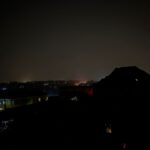For the past week, millions in Northern Nigeria have been engulfed in a relentless power outage following yet another collapse of the national grid—a recurring issue that’s disturbingly becoming routine. This blackout has disrupted daily life on an unprecedented scale, with severe consequences for health services, businesses, food security, and public safety. As the days stretch on, frustration and a sense of abandonment are growing among residents.
The power outage has thrown countless households and businesses into crisis. Many struggle to secure alternative energy sources, which, where available, are either exorbitantly priced or potentially hazardous. In homes, a lack of basic amenities like clean water and food storage has taken a toll, while schools, hospitals, and public services scramble to cope. The result is a palpable, growing discontent from citizens who feel marginalised and unheard in the face of this extended hardship.
Hospitals face overwhelming challenges in providing critical care, putting vulnerable patients at grave risk. Life-saving treatments reliant on stable electricity are suddenly inaccessible or delayed, endangering lives in a region already burdened by limited healthcare resources.
Meanwhile, many businesses remain at a standstill, with small-scale traders, food vendors, and service providers losing substantial revenue each day. The economic ripple effects threaten livelihoods, as business owners struggle to cover the costs of unreliable and expensive alternative power. Without electricity for refrigeration, perishables spoil, aggravating food insecurity in a region already grappling with nutritional challenges.
- The power of collective resolves in times of national crisis in historical perspective
- Time to address poor telecom services
In the cover of darkness, criminal activity has escalated, heightening fears for safety. With minimal lighting, security forces are further strained in ensuring the protection of communities.
For residents, living in a week-long blackout has amplified anxiety, disappointment, and a sense of helplessness as they confront a prolonged period of instability. The toll of prolonged power loss has affected the mental well-being of citizens, compounding despair among communities.
The socio-economic consequences of this week-long outage extend well beyond immediate inconveniences, presenting pressing challenges for the Northern Nigerian community. Billions of naira are lost each day as businesses, particularly small enterprises, remain shuttered.
Spoilage of perishable goods worsens food insecurity, impacting households already burdened by rising costs. Critical care is compromised as hospitals struggle to maintain operations. In the absence of sufficient lighting, crime risks intensify, compounding fears of a public safety crisis.
Residents of Northern Nigeria are calling on key authorities and stakeholders to take immediate, tangible action. The silence of relevant institutions has only fueled discontent, and citizens are demanding accountability from the federal government, the Ministry of Power, the National Electricity Regulatory Commission (NERC), the Transmission Company of Nigeria (TCN), Distribution Companies (DisCos), governors of affected Northern States, and Northern representatives in the National Assembly.
To address this crisis, citizens demand the immediate restoration of power supply and a thorough investigation into the repeated grid collapses and perceived regional inequities in power distribution.
There is an urgent need for contingency measures to prevent future blackouts, particularly in vulnerable regions. Communities most affected also require support, including essential supplies for those facing severe hardship due to the blackout.
Long-term reform in the power sector is necessary to ensure Nigeria’s chronic power challenges are addressed, with a focus on making electricity a basic, accessible right rather than a luxury.
A week of darkness is more than an inconvenience; it’s a crisis impacting the lives, health, and well-being of millions. The people of Northern Nigeria deserve better—power stability, reliable infrastructure, and accountability from those entrusted with their welfare.
The urgency of this situation demands immediate action, clear communication, and sustainable solutions to ensure that electricity is no longer a luxury but a right accessible to all.
Abdulhamid Abdullahi Aliyu, a youth corps member with Centre for Crisis Communication, can be reached via [email protected]

 Join Daily Trust WhatsApp Community For Quick Access To News and Happenings Around You.
Join Daily Trust WhatsApp Community For Quick Access To News and Happenings Around You.


